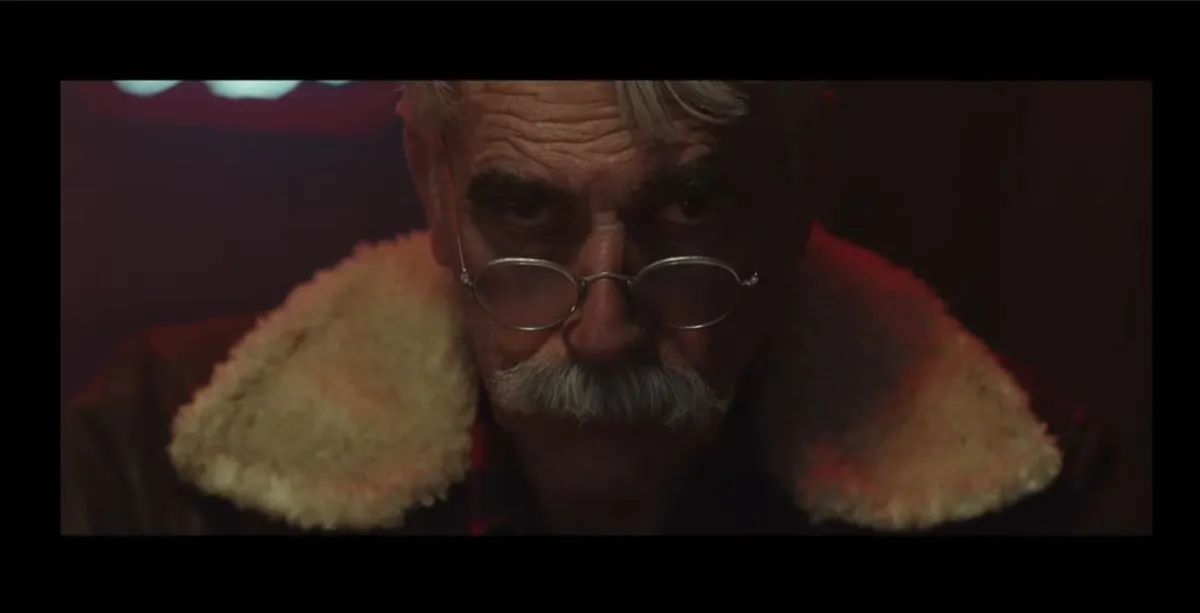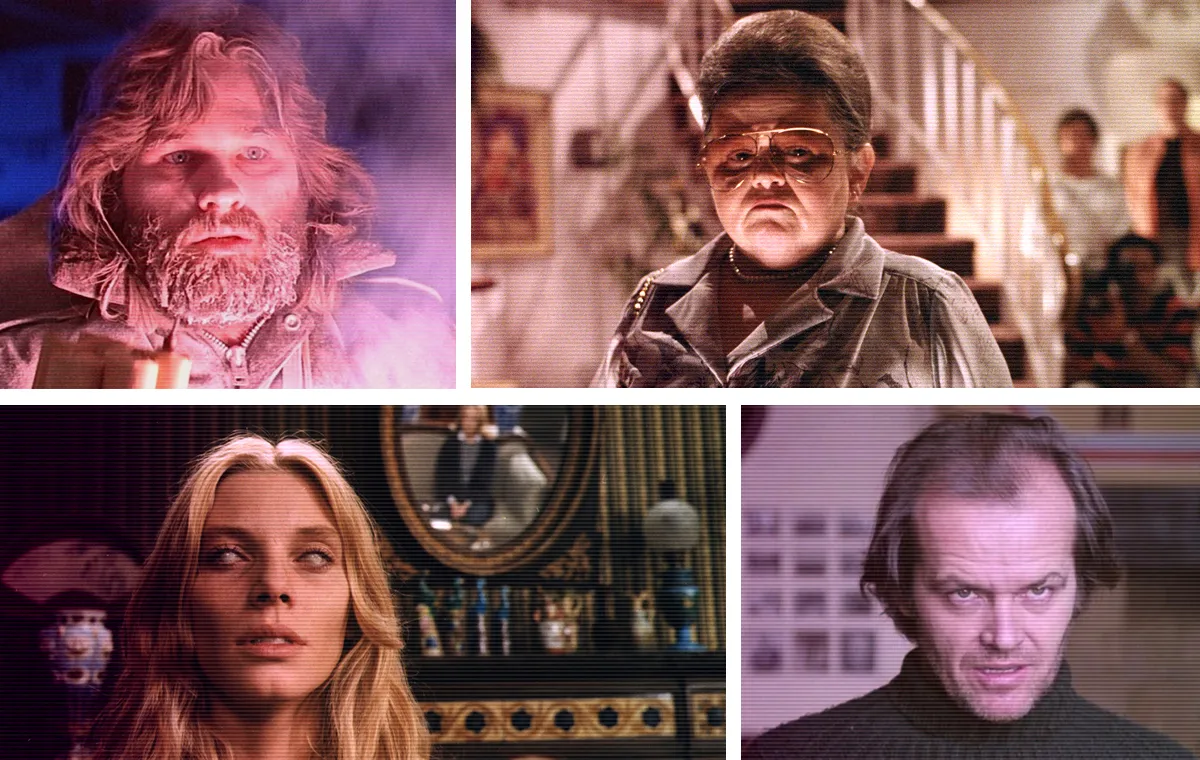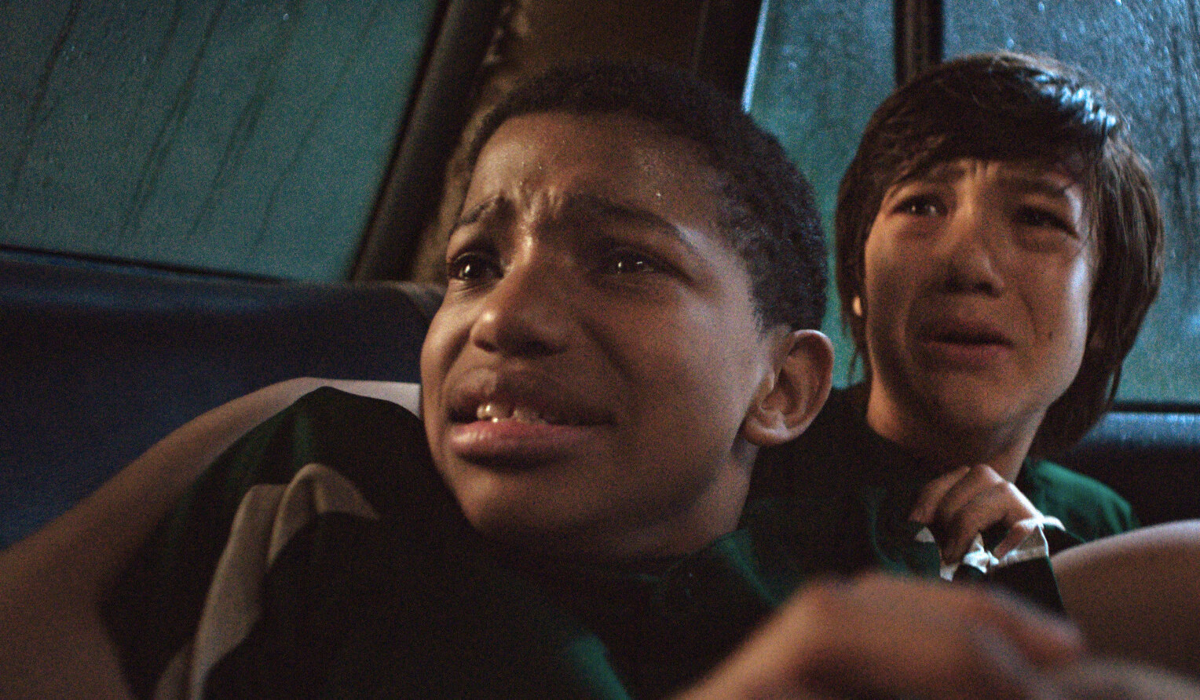With a title like The Man Who Killed Hitler and Then the Bigfoot, you might expect a blood-soaked paean to the glory days of grindhouse cinema. After all, a title like that seems more at home with the likes of Machete or Werewolf Women of the SS. than a somber meditation on American masculinity and the price of being a hero. But that’s exactly what you get with Robert D. Krzykowski’s feature film debut, anchored by Sam Elliott’s stoic central performance.
Elliot (who just received his first ever Oscar nomination for A Star is Born) has long been a fan favorite character actor. With his gruff voice and signature mustache, Elliott evokes a leading man of times gone by, a high plains drifter, a “man’s man”. His character, Calvin Barr, is cut from the same cloth as Clint Eastwood’s Walt Kowalski in Gran Torino: a man of few words, haunted by his past and ill at ease in the modern world.
The film flashes back and forth between Calvin’s past as an undercover soldier during World War II (where he is ably played by Poldark‘s Aiden Turner) and his present, where he lives a solitary life in small town America, with only his dog for company. Calvin also has a little brother, played by Larry Miller, a local barber who still looks up to him.
But the film isn’t about those titular assassinations. Calvin does kill Hitler and then the Bigfoot, but the film doesn’t dwell on these acts of heroism. It instead spends time with Calvin himself, haunted by his actions and the loss of the love of his life Maxine (Caitlin FitzGerald).
Government agents (led by Ron Livingston) come to recruit him to kill Bigfoot. The beast is sick with a flu type virus that has the potential to cause a massive disease outbreak if it is not eliminated. But the film is less concerned with monsters and evil, but the of the lonely toll that being a hero takes on a man. Calvin Barr is a legend, mythic in his own right. But you don’t become a legend without losing essential parts of yourself along the way.
Elliott gives a powerfully moving performance as Barr, but he is hindered by a third act that drags on way too long. Yet despite pacing issues, there is a powerful sense of melancholy and gravitas attached to a film that, on its surface, should be fairly silly. The Man Who Killed Hitler and Then the Bigfoot, for all its missteps, packs a surprisingly emotional punch.
The Man Who Killed Hitler and Then the Bigfoot will be available in limited theatrical release and on streaming on February 8th, 2019.
(image: screencap)
Want more stories like this? Become a subscriber and support the site!
—The Mary Sue has a strict comment policy that forbids, but is not limited to, personal insults toward anyone, hate speech, and trolling.—










Published: Feb 5, 2019 03:24 pm